The Department of Classical Studies at the Open University has just been announced as the winner of the inaugural Dr Stephanie West University Outreach Award. The prize, conferred by Classics for All, recognises the department’s success in developing accessible and innovative ways for learners to study the ancient world. The charity singled out for particular praise the OU’s free online courses, as well as its bursary schemes which fund teachers to gain formal qualifications in Classical Studies.
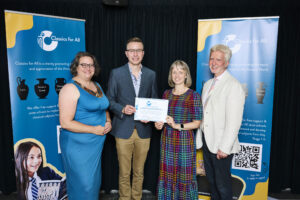
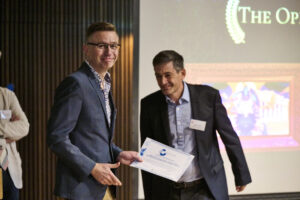 Prof James Robson comments, ‘It’s such an honour to receive this award –especially for the Open University to be its first-ever recipient – and I’m delighted that the team’s efforts and creativity have been recognized in this way. As someone who had no exposure to ancient Greece and Rome at school and who only got hooked later in life, I’m particularly conscious of the importance of creating meaningful opportunities for people to explore their interests in the ancient world. One of the ways we’ve done this at the Open University is by producing free online courses which allow learners with no prior knowledge to get a taste of topics that appeal to them. I’m especially proud of our HeadStart Classical Studies series of short courses: these were written with 16-18-year-olds in mind, but they’ve ended up attracting learners of all ages. An astonishing 200,000 individuals have visited the HeadStart webpages since they were launched in November 2023. That’s an amazing reach and it just goes to show how attractive topics like Homer, Greek religion and the Emperor Augustus can be when they’re given a contemporary twist and presented in an engaging way.’
Prof James Robson comments, ‘It’s such an honour to receive this award –especially for the Open University to be its first-ever recipient – and I’m delighted that the team’s efforts and creativity have been recognized in this way. As someone who had no exposure to ancient Greece and Rome at school and who only got hooked later in life, I’m particularly conscious of the importance of creating meaningful opportunities for people to explore their interests in the ancient world. One of the ways we’ve done this at the Open University is by producing free online courses which allow learners with no prior knowledge to get a taste of topics that appeal to them. I’m especially proud of our HeadStart Classical Studies series of short courses: these were written with 16-18-year-olds in mind, but they’ve ended up attracting learners of all ages. An astonishing 200,000 individuals have visited the HeadStart webpages since they were launched in November 2023. That’s an amazing reach and it just goes to show how attractive topics like Homer, Greek religion and the Emperor Augustus can be when they’re given a contemporary twist and presented in an engaging way.’
He continues, ‘A particular interest of mine is providing access to the study of Latin and Greek, since these languages are taught in only a tiny minority of UK schools. Incredibly, our free Getting Started in Classical Latin course has had over a million visits since its launch in 2015, and Getting Started in Ancient Greek has been similarly successful, clocking up nearly 500,000 visits since 2021. The story isn’t just about these large numbers, though, it’s also about individuals being able to satisfy their intellectual curiosity and become part of the Classical Studies community. The combination of academics’ subject expertise and the tech know-how of our media developers has resulted in an amazing set of interactive learning resources. I’m so proud to be working for a university that supports these initiatives and where ambitious ideas like ours can become reality.’
In addition to online courses, since 2017 the Department of Classical Studies – with the financial support of the A. G. Leventis Foundation – has provided 20 fully-funded MA studentships to state-school teachers, and a further eight internally-funded EDI studentships for teachers to study OU undergraduate modules.
Dr Emma Bridges emphasises the importance of these in supporting teachers to develop their subject knowledge in order to enhance the provision of classical subjects in non-fee-paying schools. She notes, ‘Historically it has been difficult, if not impossible, for pupils in schools in the state sector to study the history, culture and languages of the ancient world. The Open University Classical Studies team sees it as part of our mission to do what we can to change that. Often schoolteachers who are delivering these subjects are primarily specialists in a different academic discipline, so it’s really empowering for them to gain a Classical Studies qualification. Teachers in receipt of our bursaries have told us how transformative the Open University study experience has been, not only in terms of deepening their knowledge but also in enabling them to advocate more confidently for the value of access to Classical Studies.’
Dr. Bridges adds, ‘As with many things at the Open University, the outreach work we do looks quite different from that in other universities. One of our unique strengths is the ability to connect with learners wherever and whoever they are, and it’s wonderful that Classics for All has recognised the efforts we make to maximise the reach and appeal of our distance learning model. We love nothing more than hearing that someone with no previous experience of Classical Studies has found one of our resources and has become as enthused as we are for the subject matter!’
OpenLearn resources
Getting Started on Classical Latin
Getting Started on Ancient Greek

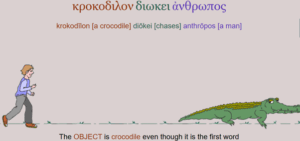
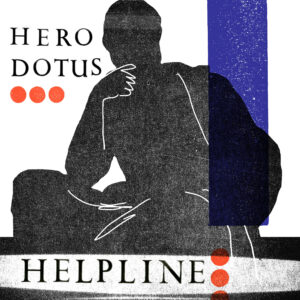
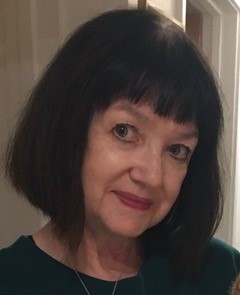
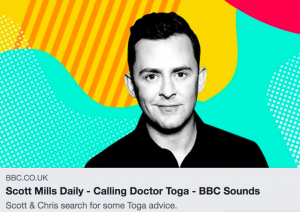
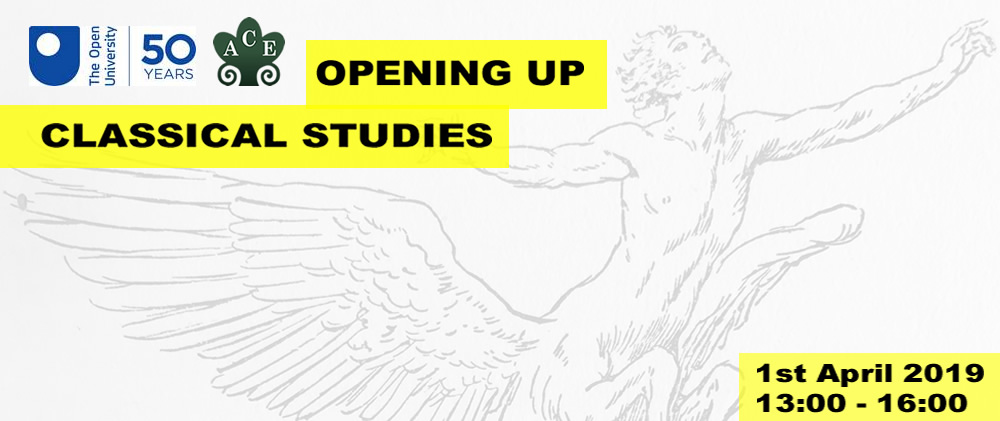
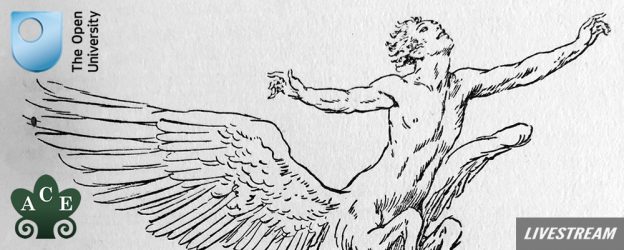
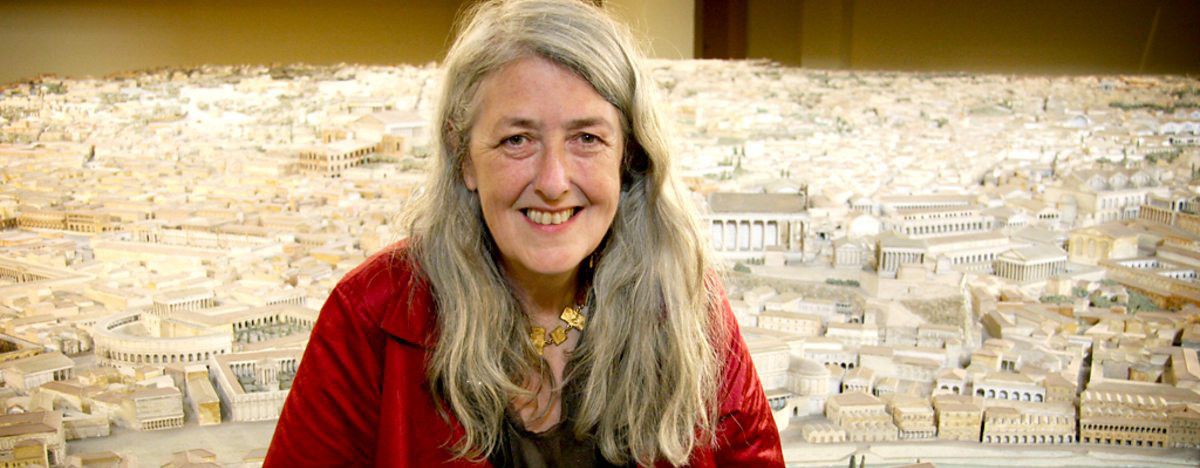
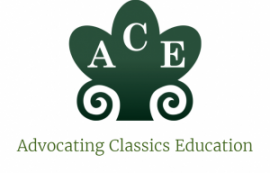
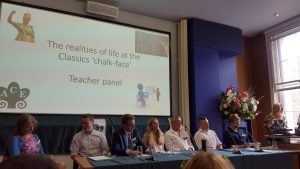
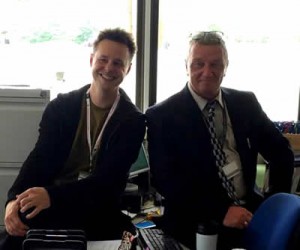 Both sets of students had the opportunity to study Classics because their outstanding teachers have — in their own time — trained themselves to deliver the course material. It is a sad truth that if it wasn’t for the extraordinary energy and passion of teachers such as Paul Found (pictured left) and Eddie Barnett, the cultural remains of the Greek and Roman worlds would scarcely feature in the formal education of children in the UK outside of fee-paying schools. I am happy to report that more teachers are already following Eddie and Paul’s pioneering example!
Both sets of students had the opportunity to study Classics because their outstanding teachers have — in their own time — trained themselves to deliver the course material. It is a sad truth that if it wasn’t for the extraordinary energy and passion of teachers such as Paul Found (pictured left) and Eddie Barnett, the cultural remains of the Greek and Roman worlds would scarcely feature in the formal education of children in the UK outside of fee-paying schools. I am happy to report that more teachers are already following Eddie and Paul’s pioneering example!